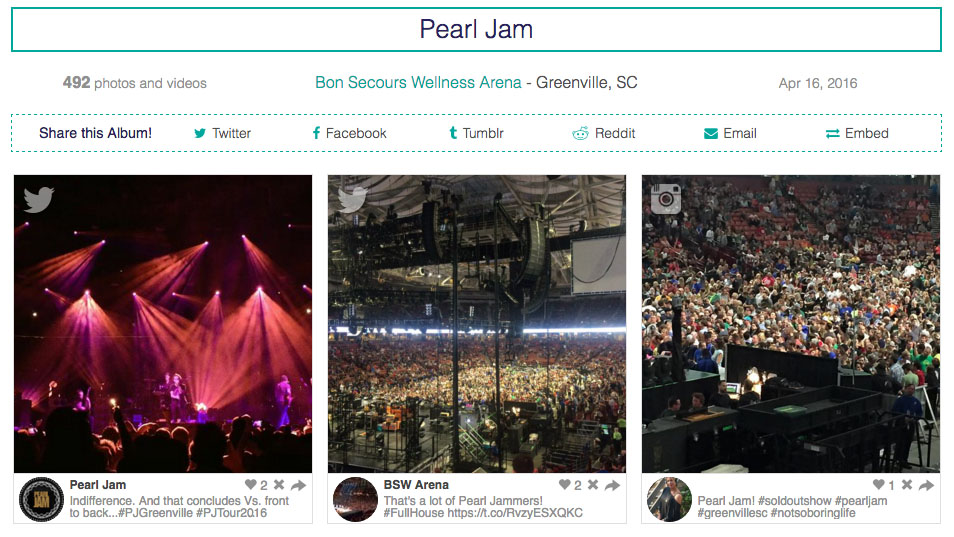Spotify wants to be your live music scrapbook, acquires CrowdAlbum
Just don't block too many eyes with your phablet

Spotify has announced it has acquired CrowdAlbum, a service which allows users to upload photos and videos from music concerts.
Fans who were unable to attend are then able to use the service to catch up with events from attendees.
Spotify is hoping to use the service to increase artists' engagement with fans through collating their uploads from a concert in a single portal.
Historically fans have uploaded their content to a variety of services including YouTube and Facebook. By encouraging people to instead upload everything to a centralised service Spotify hopes to bring fans closer together over the experience.
This is not the first time Spotify has offered greater integration with live performances. Its SongKick integration allows users to purchase tickets to upcoming shows from inside Spotify.
A royal mess
The news comes as opposition to Spotify's royalty payments model intensifies, with high profile artists such as Taylor Swift and more recently Beyonce snubbing the service in favor of rival Tidal, which promises to pay higher royalties to artists.
Spotify has been making progress, recently agreeing to pay $21m in unpaid royalties to artists.
Get daily insight, inspiration and deals in your inbox
Sign up for breaking news, reviews, opinion, top tech deals, and more.
Although online streaming guarantees higher revenues for artists compared to the previous high rates of music piracy that preceded their introduction, revenues have failed to return to the levels of physical media, leaving artists to rely more heavily on the revenue generated from live performances.
Jon Porter is the ex-Home Technology Writer for TechRadar. He has also previously written for Practical Photoshop, Trusted Reviews, Inside Higher Ed, Al Bawaba, Gizmodo UK, Genetic Literacy Project, Via Satellite, Real Homes and Plant Services Magazine, and you can now find him writing for The Verge.
